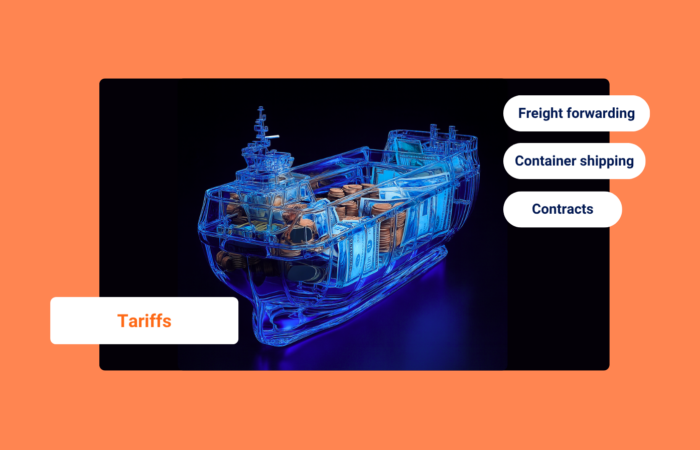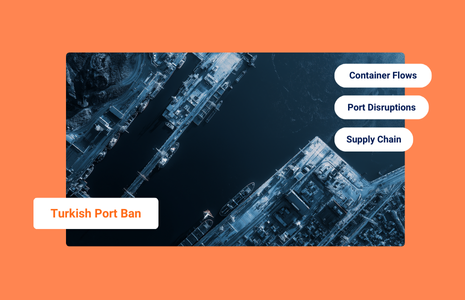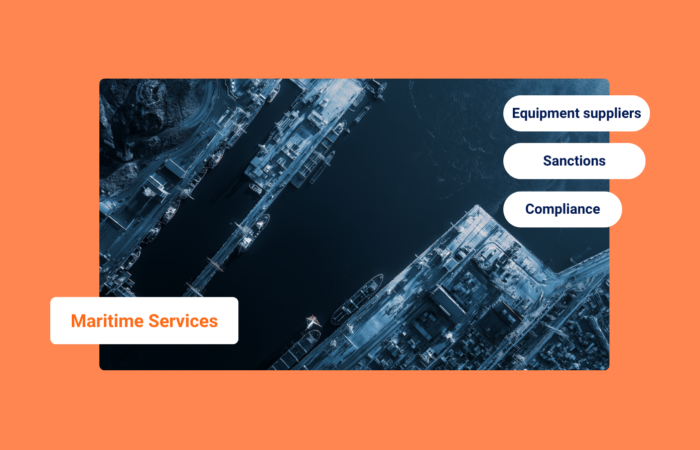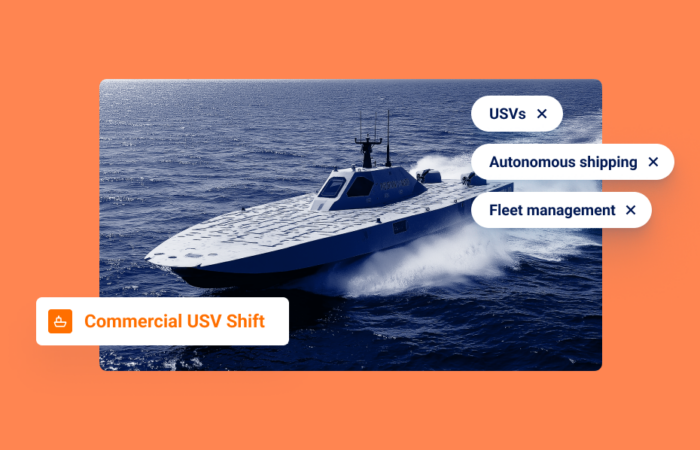One-Size-Fits-None: 4 Takeaways From Gartner’s Supply Chain Symposium/Xpo

What’s inside?
One of the central themes Windward took home from Gartner’s recent supply chain event is that one-size-fits-none: the supply chain ecosystem houses a wide variety of players with varying challenges and pain points. The way forward is to understand your organization’s needs and how they can be best filled, particularly in terms of data and AI, which is presumably a main reason many participants attended Gartner’s symposium.
The AI Buzz(word?)
Artificial Intelligence (AI) was discussed and presented in what seemed like every session and booth during this year’s event. AI is already changing the world of logistics, allowing operators to stay informed, generate analyses, and automate processes. While some leading companies have already integrated AI tools into their products or pledged to do so in the near future, only a handful of companies have incorporated Generative AI (Gen AI) into their offerings.
There were some great discussions about AI and Gen AI at Gartner, but it also became quickly apparent that both are in danger of being turned into buzzwords that get thrown around too freely…

Tackling the Generalization Dilemma
Another key takeaway from the Gartner event is that AI, in its most effective form, can’t be a one-size-fits-all solution. Generic discussions about AI often gloss over the intricacies of its implementation. Successful AI integration demands a deep understanding of the specific use case it aims to address, which really means a deep understanding of specific pain points and how to heal them.
This involves moving beyond surface-level discussions to explore how AI can solve distinct, real-world problems. In the coming months, the ecosystem is expected to become more familiar with Gen AI for the supply chain.
The Power of Data
Nearly every session also highlighted the critical role of data. This signals that tech providers and customers must adapt and innovate to shift their businesses to the AI era, but it’s important to note that not every organization is facing the same data challenges.
Implementing advanced tools in supply chain companies requires a top-notch data strategy across organizations. Trust in AI output was a significant topic of discussion, underscoring the importance of reliable and transparent AI systems, and experienced vendors. Clean, harmonized, and well-hydrated data lakes are essential. Without a solid data foundation, even the most advanced AI applications can deliver inaccurate or misleading results, undermining their potential benefits.
Our session at Gartner highlighted the critical role of data in driving business growth. With our customer, Ligentia, we detailed the real challenges that logistics companies encounter and the highly disruptive environment the supply chain industry is facing.
Ligentia, a leading global supply chain solutions provider, had seen transit times increase from 34 to 46 days, and on-time reliability drop from 44% to 10%. These disruptions caused inventory misalignment, planning difficulties, and increased costs for their retail customers. Ligentia integrated Windward’s Ocean Freight Visibility solution into their portal to address these issues.
This integration has significantly improved prediction accuracy, enabling proactive supply chain management and better decision-making. Ligentia’s CTO, Anthony Plummer, highlighted the partnership’s role in enhancing customer success through reliable, real-time data and predictive insights, crucial for mitigating supply chain risks and improving business performance.
Read the full case study here.

Addressing Workforce Challenges
Another takeaway was the challenge of hiring and workforce planning in the supply chain ecosystem. Training the workforce in this traditional industry currently requires resources, out-of-the-box thinking, and the need for new talent to enter the industry. Once organizations recognize their specific challenges (again disregarding a one-size-fits-all approach), advanced technologies, such as AI, can speed onboarding and training, and raise productivity among current employees.
The Path Forward
To unlock AI’s true potential, businesses must zero in on precise use cases. It’s not enough to know that AI can enhance operations – organizations must identify exactly how AI can serve their unique needs.
Gartner was a testament to the supply chain ecosystem’s growing interest and investment in AI. But to truly revolutionize this industry, AI must shift from high-level discussions to focused, practical applications supported by robust data strategies. As the ecosystem evolves, the conversations around AI are expected to become more sophisticated, driving meaningful advancements in the supply chain and beyond.
Learn to leverage a unique data strategy for your business and ensure smooth data standardization. Maintaining AI reliability and preventing data issues requires human oversight, and partnering with AI specialists such as Windward is crucial for effectively managing these complexities.











